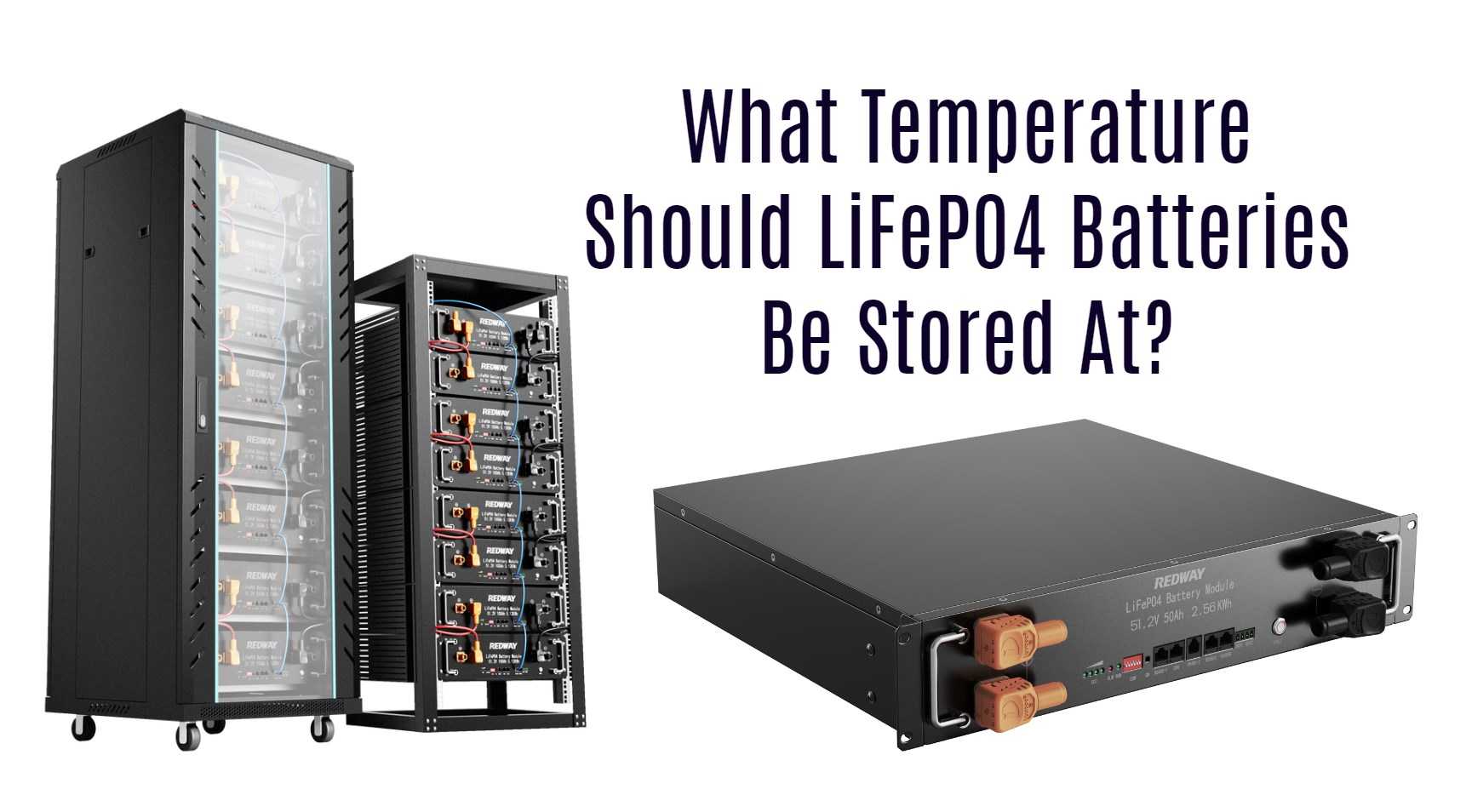What Temperature Should LiFePO4 Batteries Be Stored At?
When it comes to storing LiFePO4 (Lithium Iron Phosphate) batteries, maintaining the right temperature is crucial for ensuring their longevity and performance. Understanding the optimal storage conditions can help prevent damage and maximize battery life.
Recommended Storage Temperature Range
- The ideal storage temperature for LiFePO4 batteries is between 0°C and 35°C (32°F to 95°F). Keeping the batteries within this range helps maintain their capacity and overall health.
- Storing LiFePO4 batteries at temperatures below 0°C (32°F) can lead to a significant drop in capacity and may shorten their cycle life. At extremely low temperatures, the battery may not perform effectively, and charging should be avoided.
Effects of Temperature on Performance
- High Temperatures:
- Storing LiFePO4 batteries at high temperatures (above 35°C) can accelerate self-discharge rates, reduce cycle life, and increase the risk of thermal runaway.
- At temperatures exceeding 55°C (131°F), the battery’s performance can degrade significantly, leading to potential safety hazards.
- Low Temperatures:
- When stored at temperatures below 0°C, LiFePO4 batteries may experience reduced capacity. For instance, at -20°C (-4°F), the battery might only achieve about 40% of its rated capacity.
- Attempting to charge LiFePO4 batteries at low temperatures can also cause damage. It is recommended to avoid charging below 0°C.
Best Practices for Storage
- Charge Level: Store LiFePO4 batteries at a state of charge (SoC) between 20% and 40% to prevent over-discharging during storage. This helps maintain battery health over extended periods.
- Environment Control: If possible, keep the batteries in a temperature-controlled environment to mitigate fluctuations that could affect performance.
- Insulation: In colder climates, consider insulating the storage area or using heating elements designed for battery maintenance to keep temperatures within the ideal range.
Common Mistakes to Avoid
- Ignoring Temperature Specifications: Operating or storing batteries outside the recommended temperature range can lead to irreversible damage.
- Inadequate Thermal Management: Failing to provide proper insulation or cooling can result in temperature-related issues, including reduced capacity and shortened lifespan.
- Overcharging or Over-discharging: Exceeding the battery’s specified voltage limits can cause excessive heat generation and potential safety hazards.
Latest News in Battery Technology
- Recent advancements in thermal management systems are being developed to enhance the performance of LiFePO4 batteries in extreme conditions.
- Manufacturers are focusing on improving battery chemistry to withstand higher temperatures without compromising safety or efficiency.
- Innovations in smart battery technology are allowing for better monitoring of temperature and performance metrics, ensuring optimal usage conditions.
Redway Expert Comment
In our experience at Redway Battery, understanding the optimal storage conditions for LiFePO4 batteries is essential for maximizing their lifespan and performance. By adhering to recommended temperature ranges and maintaining appropriate charge levels during storage, users can significantly enhance their battery’s reliability and efficiency.” In conclusion, storing LiFePO4 batteries at an optimal temperature range of 0°C to 35°C is vital for preserving their performance and longevity. By following best practices for storage and avoiding common pitfalls, users can ensure that their batteries remain in excellent condition for years to come.



